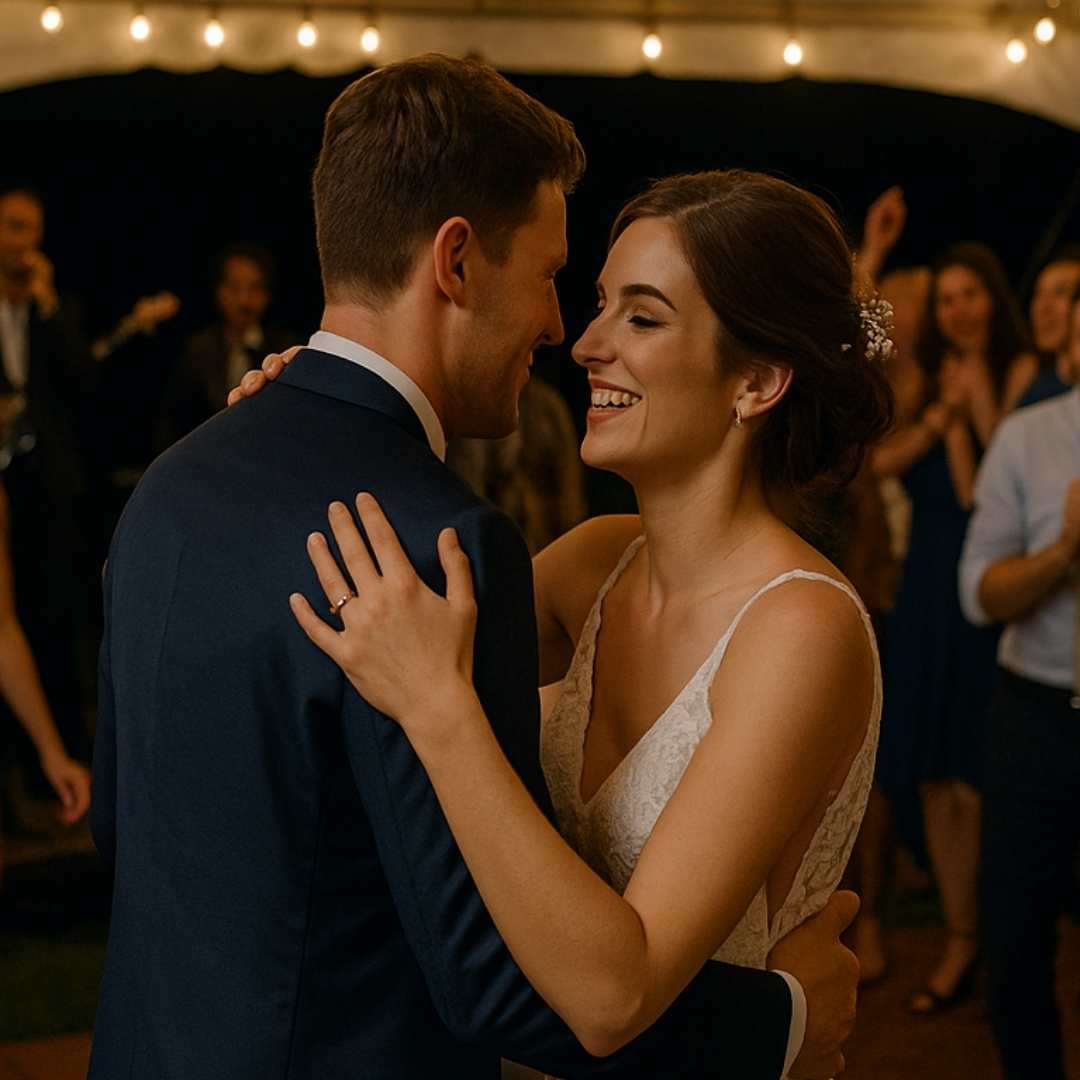Event Noise Regulations in 2025: How to Stay Compliant and Keep the Party Going
Stay compliant with event noise regulations in 2025. Learn city noise laws, permits, and tools to host unforgettable events without fines.

If you’ve ever thrown an event only to have the police show up because of a noise complaint, you know how quickly the vibe can shift from festive to frantic. In 2025, cities are enforcing stricter noise regulations than ever before, and event planners, wedding hosts, festival organizers, and corporate event managers are all under pressure to strike the right balance: keep the music and energy high while staying on the right side of the law.
With urban populations growing and technology making noise enforcement easier, ignoring these rules isn’t an option. But here’s the good news: you don’t have to sacrifice your event’s atmosphere just to stay compliant. With the right preparation, smart tools, and a little creativity, you can host events that are fun, memorable, and law-abiding.
This guide breaks down everything you need to know about event noise laws in 2025, common mistakes to avoid, and practical strategies to keep the party going without breaking the rules.
1. Why Noise Regulations Are More Important Than Ever
Noise complaints aren’t new, but 2025 has brought a new wave of awareness and accountability. Here’s why event hosts need to take noise laws seriously:
- Urban density is at an all-time high. More people living close together means less tolerance for loud events that run late into the night.
- Cities are cracking down. Many municipalities have updated noise ordinances with clearer limits, higher fines, and stricter enforcement mechanisms.
- Outdoor events are booming. Since the pandemic era, more events have shifted outdoors — and that means sound travels further, especially in residential neighborhoods.
- Technology makes it easy to catch violators. With noise sensors installed on city blocks and mobile apps that allow residents to file real-time complaints, the margin for error is shrinking.
The takeaway? Noise compliance is no longer just a courtesy — it’s a professional standard for hosting events in 2025.
2. Understanding Event Noise Laws in 2025
Noise laws vary by city, but most ordinances share some common elements. If you’re planning an event, here’s what you’ll likely encounter:
- Decibel limits: Most cities set maximum decibel levels for different times of day. For example, you might be allowed 70 decibels until 10 PM, dropping to 55 decibels afterward.
- Time restrictions: Curfews are common. Late-night events often face stricter rules, especially in residential areas.
- Zoning considerations: A corporate event downtown won’t face the same restrictions as a backyard wedding in a suburban neighborhood. Commercial zones usually have more leniency than residential zones.
- Permits and approvals: Some events require special sound permits, especially if you’ll be using amplified music, DJs, or live bands.
- New enforcement tools: Cities are now using AI-based noise sensors to measure sound in real time. Some even issue automatic citations if sound exceeds the legal threshold.
Pro Tip:
Always check the specific ordinances in your city or county — regulations can change drastically depending on location.
3. Common Mistakes Event Hosts Make
Even experienced planners fall into traps when it comes to noise management. Here are some of the most frequent missteps:
- Assuming the rules are universal. Noise laws differ by city, so copying what worked in one location can get you in trouble in another.
- Skipping permits. Many hosts think small events don’t require permits, but if amplified sound is involved, permits are often mandatory.
- Forgetting about bass. Low frequencies carry further and vibrate walls — making them a top cause of complaints.
- Neglecting neighbors. Ignoring the people living or working nearby can lead to friction, even if you’re technically within the law.
- No monitoring plan. Too many hosts wait until law enforcement shows up to realize they’ve crossed the line.
Avoiding these pitfalls is step one in protecting your event and your reputation.
4. How to Stay Compliant Without Killing the Vibe
The biggest myth in event planning is that compliance means compromise. In reality, with a few strategic steps, you can stay within the rules while still keeping guests energized and entertained.
Pre-Event Preparation
- Research city-specific noise regulations well in advance.
- Build compliance costs (like permits or soundproofing) into your event budget.
Permits & Approvals
- Apply for the necessary sound permits early — some cities require weeks of lead time.
- Work with the venue to confirm whether they already have the right approvals.
Soundproofing & Setup
- Use temporary barriers or acoustic panels if you’re outdoors.
- Position speakers to face away from residential areas.
- Raise speakers above crowd level to reduce unnecessary volume.
Volume Management
- Use a decibel meter to monitor sound throughout the event.
- Employ sound limiters that automatically cut audio if it exceeds legal thresholds.
- Have a designated sound technician monitor volume in real time.
Communication
- Notify nearby residents or businesses about your event in advance.
- Offer goodwill gestures, like complimentary tickets or early communication, to minimize complaints.
- Stay in touch with law enforcement or city officials in case of concerns.
5. Tools & Technology to Manage Noise in 2025
Fortunately, technology has made compliance easier than ever. Event hosts can now rely on tools like:
- Noise-monitoring apps and devices: Affordable handheld decibel meters or smartphone apps give you real-time readings.
- Smart sound systems: Many modern speakers come with built-in volume limiters.
- City-integrated platforms: In some locations, event organizers can register with a city portal to receive real-time noise alerts before complaints escalate.
- Silent disco solutions: Guests wear wireless headphones for music — allowing for high-energy dance floors without disturbing the neighbors.
Embracing these innovations not only ensures compliance but also showcases your professionalism as a host.
6. Case Studies: Hosting Events That Balance Fun and Compliance
Music Festival Example
A mid-size city festival partnered with a noise-monitoring company in 2024. By placing decibel sensors around the venue and assigning a compliance officer, the festival avoided fines while still hosting multiple live bands.
Wedding Venue Example
A popular suburban wedding venue invested in sound barriers and directional speakers. Couples could still have lively dance floors, but nearby residents no longer lodged complaints — keeping the venue in business.
Corporate Event Example
A tech company hosted an outdoor product launch and used silent disco headphones for the after-party. Guests had a blast, and the event earned praise from city officials for creative compliance.
These examples show that managing noise doesn’t have to mean lowering expectations — it just requires smarter planning.
7. Pro Tips for Event Planners
If you want to take your event noise strategy to the next level, keep these tips in mind:
- Conduct a pre-event site assessment to understand acoustics and surroundings.
- Build a compliance checklist and share it with your team.
- Appoint a noise manager whose sole job is monitoring sound.
- Have backup plans — from lowering the bass to moving late-night activities indoors.
- Document your compliance efforts. If complaints arise, showing proof of permits, decibel logs, and monitoring can protect you.
Conclusion
In 2025, hosting a successful event means mastering the art of balance. You want the music pumping, the crowd buzzing, and the memories lasting — but you also want to avoid fines, shutdowns, or neighbor disputes. By understanding local event noise regulations, planning ahead, and leveraging new technology, you can create experiences that are both unforgettable and compliant.
The best event planners know that compliance isn’t a limitation — it’s a sign of professionalism. When you take noise management seriously, you don’t just protect your event; you elevate your reputation and ensure guests walk away with the only sound they remember: the music, the laughter, and the celebration.
Explore studios to rent
Find and book creative spaces for all of your content creation needs, from video production to podcasting, photo shoots, and more!
Browse Spaces

.jpg)
.jpg)
